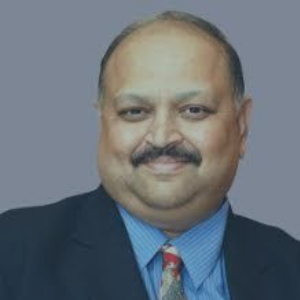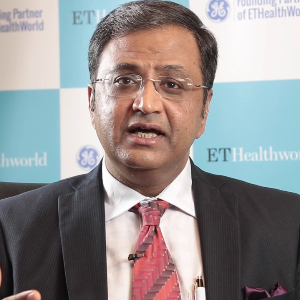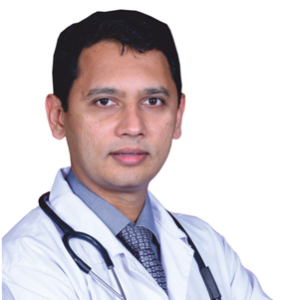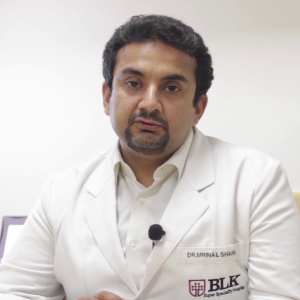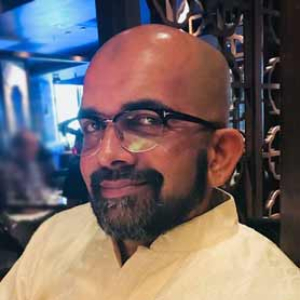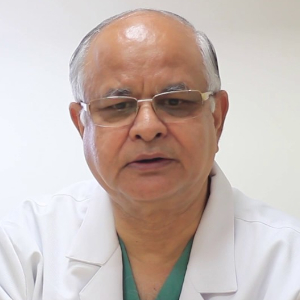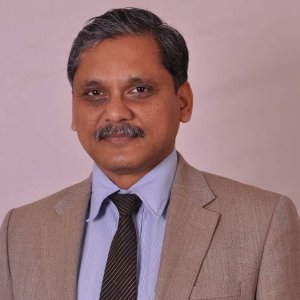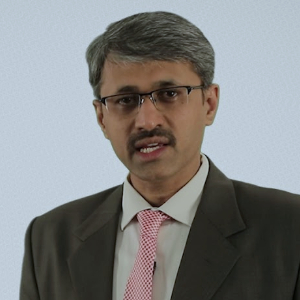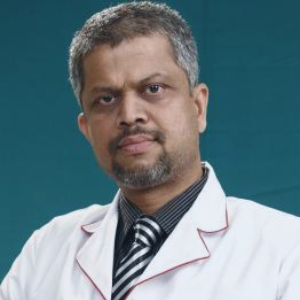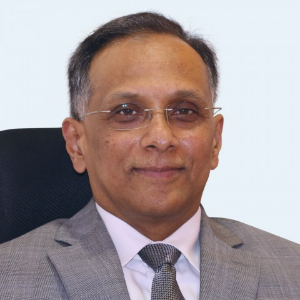Best Doctors in India for Spinal fusion
- Orthopedic Surgeon & Spine Surgeon, Mumbai, India
- Over 20 years’ experience
Profile Highlights:
- Dr. Gautam Zaveri is one of the best spine surgeons in India today and has performed over 3000 spinal surgeries for the treatment of spinal fractures, trauma, slipped discs, kyphosis, scoliosis, sciatica, spondylolisthesis, and spinal stenosis.
- Dr. Zaveri specializes in Minimally Invasive Spine Surgeries commonly known as MISS and performs most of his procedures using this technique to minimize cuts and speed up the recovery process.
- Neurosurgeon, Chennai, India
- Over 35 years’ experience
Profile Highlights:
- Dr. K Sridhar is a renowned Neurosurgeon who has an experience of 35+ years in brain and spine surgery and has performed over 1000 complex brain tumor surgeries.
- His primary area of interest is skull base surgery, micro neurosurgery, and spine surgery, and is currently working on lesions of the brain stem.
- Neurosurgeon, Bengaluru, India
- Over 22 years’ experience
Profile Highlights:
- Dr. Madhusudan H V is an expert Neurosurgeon in South India with 22+ years of experience in neuro and spine surgery.
- With a specialization in minimally invasive neurosurgeries, Dr. Madhusudan holds the credit for more than 7000 neurosurgeries. He also finds interest in endoscopic interventions and frameless navigations.
- Orthopedic Surgeon, New Delhi, India
- Over 20 years’ experience
Profile Highlights:
- Dr. Mrinal Sharma is a highly renowned Orthopedic Surgeon and Joint Replacement Specialist with a specialization in Arthroplasty.
- Dr. Mrinal Sharma holds with him an experience of more than a decade and has achieved huge success with joint replacement procedures, especially of the knee, during his career.
- He is among the new generation of Orthopedic surgeons who use Computer Navigated techniques for performing knee and hip replacement surgeries.
- Orthopedic Surgeon, Mumbai, India
- Over 20 years’ experience
Profile Highlights:
- Dr. Murali Poduval is a well-known Orthopedic surgeon in Mumbai with a specialization in Joint Replacement surgeries.
- He holds an extensive experience of close to 2 decades in Orthopedics and Joint replacement surgery and is an expert in the management and treatment of deformity correction, arthroplasty, and complex trauma.
- He is highly skilled in performing all types of primary and revision surgeries on the hip, knee, and spine. His primary interest also includes hip arthroplasty for severe defects in children and adolescents.
- Orthopedic Surgeon & Spine Surgeon, New Delhi, India
- Over 40 years’ experience
Profile Highlights:
- Dr. Pradeep Sharma is the Director of the BLK-Max Centre for Orthopedics, Joint Reconstruction, and Spine Surgery in Delhi.
- Dr. Pradeep Sharma has an experience of 40+ years in the field and is an expert in the treatment of both adult and pediatric patients.
- Dr. Pradeep Sharma runs arthroplasty Fellowships supported by Zimmer and Stryker and has trained and mentored young surgeons in Arthroplasty.
- Neurosurgeon & Spine Surgeon, Bengaluru, India
- Over 20 years’ experience
Profile Highlights:
- Dr. Prahraj S S is a leading Neurosurgeon who specializes in all types of neurological surgeries and has performed over 6000 neurosurgeries till date along with complex cranial and spine surgeries.
- He is one of the most renowned neurosurgeons in the country and has provided his services to some of the premier medical institutes in India such as NIMHANS where he performed a large number of spinal surgeries.
- Neurosurgeon & Spine Surgeon, Bengaluru, India
- Over 15 years’ experience
Profile Highlights:
- Dr. Praveen K S is a highly qualified neurosurgeon with over a decade of experience in handling all kinds of neurological diseases and disorders.
- He specializes in Pediatric Neurosurgery, Neuro-Oncology, Endoscopic neurosurgery, Aneurysms, and Neuro- Trauma and has performed over 4000 neurosurgeries in his career.
- Neurosurgeon & Spine Surgeon, Mumbai, India
- Over 20 years’ experience
Profile Highlights:
- Dr. Rahul Modgi is a highly established neuro and spine surgeon in Mumbai specializing in all types of brain and spine surgeries.
- Dr. Rahul Modgi’s name has been recorded in the Limca Book of Records in 2014 when he removed the heaviest iron rod from the brain of a 17-year-old patient. He has also performed various other risky surgeries for which he has greatly appreciated.
- Neurosurgeon, Bengaluru, India
- Over 30 years’ experience
Profile Highlights:
- Dr. Rajakumar V Deshpande is a renowned Neurosurgeon in Bengaluru. He performed the first pedicle screw fixation surgery for a spine injury in Bangalore.
- Dr. D V Rajakumar specializes in endoscopic neurosurgeries and has performed some of the most complex brain and spine surgeries through the endoscopic approach. His other areas of interest include minimally invasive neuro surgeries, management of cerebrovascular diseases, and brain tumor surgeries.
Best Hospitals in India for Spinal fusion
Paras Hospital, Gurugram
- City: Gurugram, India
Hospital Highlights:
- Paras hospital was established in 2006 and is the 250 bedded flagship hospital of Paras Healthcare.
- The is supported by a team of doctors of international and national repute.
- The hospital is NABH accredited and also the first hospital in the region to have a NABL accredited laboratory.
- The hospital provides specialty medical services in around 55 departments including Neurosciences, Joint Replacement, Mother & Child Care, Minimal Invasive Surgery, Gynecology and Obstetrics, Ophthalmology, Dermatology, Endocrinology, Rheumatology, Cosmetic and Plastic surgery.
- The hospital is equipped with state-of-the-art technologies.
S L Raheja Hospital, Mahim, Mumbai
- City: Mumbai, India
Hospital Highlights:
- SL Raheja hospital is a 140-bed multi-specialty tertiary care hospital that is being managed by Fortis Healthcare Ltd.
- The hospital is a benchmark in healthcare and medical facilities in the neighborhood of Mahim & the western suburbs.
- L.Raheja Hospital, Mahim has one of the most effective ICU and Casualty care services.
- The hospital provides specialty medical services in Cardiology, Oncology, Neurology, Orthopedics, Mother & Child Care, and in Diabetes.
Wockhardt Hospitals, Mumbai
- City: Mumbai, India
Hospital Highlights:
- Wockhardt Hospitals were established in the year 1973, originally called First Hospitals and Heart Institute.
- Wockhardt Hospitals are super specialty health care networks in India, nurtured by Wockhardt Ltd, India’s 5th largest Pharmaceutical and Healthcare company.
- Wockhardt Hospitals is associated with Partners Harvard Medical International, an international arm of Harvard Medical School, USA.
- Wockhardt Heart Hospital performed India’s first endoscopic heart surgery.
- The hospital has a state-of-the-art infrastructure equipped with the latest technologies and modern equipment.
- It has special Centers of Excellence dedicated to the major specialties to provide hassle-free and high-quality clinical care.
Pushpawati Singhania Hospital & Research Institute, New Delhi
- City: New Delhi, India
Hospital Highlights:
- Established in 1996, Pushpawati Singhania Research Institute is one of the top hospitals in the NCR region, as well as one of the top facilities in India for gastroenterology. The hospital is one of South Asia’s first institutes in medical and surgical treatment for diseases related to digestion.
- The hospital is equipped with state-of-the art facilities coupled with the latest equipment as well as renowned consultants from various parts of India as well as other parts of the world.
Indian Spinal Injuries Center, New Delhi, India
- City: New Delhi, India
Hospital Highlights:
- The Indian Spinal Injuries Center (ISIC), provides state-of-the-art facilities for the management of all types of spinal ailments.
- Staffed with internationally trained, acclaimed, and dedicated spine surgeons, the hospital provides cutting-edge medical & surgical technology. The hospital provides comprehensive management of spinal injury, back pain, spinal deformities, tumors, osteoporosis, etc.
- The hospital performs motion-preserving spine surgeries including disc replacement and dynamic fixation, and minimally invasive spine surgeries such as endoscopic disc excision.
- The orthopedic service of the hospital covers all orthopedic ailments including trauma, joint diseases & replacements, oncology, pediatric orthopedics & upper limb ailment.
W Pratiksha Hospital, Gurgaon
- City: Gurugram, India
Hospital Highlights:
- W Pratiksha Hospital, Gurugram, is one of the best hospitals in the NCR region. It is also a top hospital in India for IVF. Since its inception, the hospital has performed over 5500 successful IVFs. The hospital also specializes in gynecology.
- With over 20 years of experience in providing quality healthcare, the hospital is known as one of the most trusted and valued health providers in India.
- Equipped with world-class medical facilities and advanced technology, the hospital’s doctors and clinicians also have a track record of delivering excellent results. The hospital is also known for focusing on preventive well-being as much as on curative treatment.
- The hospital has earned the trust of its patients, by providing the best available treatments at affordable costs.
Narayana Superspeciality Hospital, Gurugram
- City: Gurugram, India
Hospital Highlights:
- Situated near DLF Cyber City, Gurugram, Narayana Superspecialty Hospital is one of the top medical facilities in the Delhi NCR region, catering to the needs of the people. Known for its commitment to quality medical care and patient service, the hospital is a state-of-the-art facility with planned and well-equipped sections, which includes a spacious OPD area as well as comfortable patient rooms.
- It is the closest super-specialty hospital from Indira Gandhi International Airport towards Gurugram, and also the nearest super specialty hospital from DLF Cyber City. It is also close to major residential areas in Gurugram.
- It is part of the renowned Narayana Health Group. Established in 2000, by Dr. Devi Shetty, a renowned cardiac surgeon, it has grown to be one fo India’s leading healthcare groups.
Sir Ganga Ram Hospital, New Delhi
- City: New Delhi, India
Hospital Highlights:
- Sir Ganga Ram Hospital, New Delhi is known to provide the latest medical procedures with the latest technology in all of its units.
- The hospital has a team of reputed doctors, nurses, and healthcare professionals that ensure that patients receive quality care at affordable costs.
- Staffed with a team of highly qualified doctors, dedicated nurses, and paramedical and non-medical staff, the hospital aims to lead in healthcare delivery, medical education, training, and research.
- As per the vision of the founder, the hospital also provides free treatment to the economically weaker sections of society.
- Sir Ganga Ram Hospital also provides training to young doctors under the Diplomate in National Board(DNB) program. The DNB program at the hospital was started in 1984 and it is known for currently running the maximum number of DNB specialties in the country. It also has the distinction of having the first bone bank in India.
KIMS Hospital, Hyderabad
- City: Hyderabad, India
Hospital Highlights:
- KIMS Hospital (a brand name of Krishna Institute of Medical Sciences) is one of the largest and best multi-speciality hospitals in Hyderabad. The hospital provides various treatments to an enormous number of patients.
- The hospital has a capacity of more than 3000 beds. KIMS Hospitals offers different healthcare services in more than 25 specialities and super specialities.
- The hospital is equipped with modern medical equipment and technology. It has robotic equipment to provide minimal invasive techniques for patients.
- The hospital is aimed at providing world-class healthcare facilities and services at an affordable cost for patients.
- The various specialities and departments of the hospital include neurosciences, gastroenterology & hepatology, robotic science, reproductive sciences, dental science, oncological sciences, organ transplantation, heart and lung transplantation and mother and child care.
Fortis Hospital, Shalimar Bagh
- City: New Delhi, India
Hospital Highlights:
- Fortis Hospital in Shalimar Bagh is a multi-super specialty hospital that strives to provide world-class patient care by leaving no stone unturned.
- Fortis, Shalimar Bagh, with 262 beds and a 7.34-acre footprint, provides the best level of medical care through its team of doctors, nurses, technicians, and management professionals.
Spinal Fusion
Spinal fusion is a surgical procedure which involves connecting two or more vertebrae in your spine permanently to eliminate motion between them. It involves techniques that can mimic the normal healing process of any broken bones. The procedure is performed to fuse together two or more vertebrae so that they may heal into a single, solid bone. This can help in eliminating painful motion as well as restoring stability to your spine.
This surgery is recommended only when your doctor is able to pinpoint the source of your pain. This procedure can help relieve symptoms of many back problems, such as degenerative disk disease, fractured vertebra, spinal stenosis, herniated disk, tumor, etc.
Purpose
Spinal fusion can permanently connect two or more vertebrae in your spine for improving stability, correcting a deformity as well as for reducing pain. Your doctor might recommend spinal fusion to treat any of the following:
Deformities of the spine- Spinal fusion helps in correcting spinal deformities, such as a sideways curvature of the spine termed as scoliosis.
Herniated disk- Spinal fusion can also be used for stabilizing the spine after removal of a damaged (herniated) disk.
Spinal weakness or instability- If there is excessive or abnormal motion between two vertebrae, this can lead to your spine becoming unstable. This is usually a common side effect of severe arthritis in the spine. Spinal fusion can be used for restoring spinal stability in such cases.
Preparation
Prior to your surgery, the surgical site will need to be cleaned with antiseptic and any hair will need to be trimmed. The surgical team can also order a swab sample to monitor any unhealthy bacteria in your nose. If you are taking any kind of medication, you need to let your doctor know. Before your surgery, you might need to stop taking them.
During the Procedure
You will be under general anesthesia during the procedure. There are a variety of techniques for performing this procedure. The technique which your surgeon uses can depend on the location of the vertebrae to be fused, the reason for your fusion as well as your body shape and overall health.
The procedure generally involves the following steps:
Incision
To gain access to the vertebrae being fused, your surgeon will first be making an incision in one of three locations, viz. in your neck or back directly over your spine, on either side of your spine, in your abdomen or throat. This will allow your surgeon to access the spine from the front.
Bone graft preparation
The bone grafts that will actually fuse the two vertebrae can come from a bone bank or from your own body, usually from your pelvis. If your own bone is being used, the surgeon will make an incision above your pelvic bone; then he/she will remove a small portion of it after which he will be closing the incision.
Fusion
For fusing the vertebrae together permanently, the surgeon will need to place the bone graft material between the vertebrae. He/she can use metal plates, screws or rods to help hold the vertebrae together while the bone graft heals.
There are surgeons who use a synthetic substance instead of bone grafts in selected cases. These synthetic substances can help to promote bone growth as well as speed the fusion of the vertebrae.
After spinal fusion
Usually after spinal fusion, you might need to stay in the hospital for two or three days. You may also experience some pain and discomfort, though it can be controlled with the help of medications.
After you reach home, remember to inform your doctor if you exhibit any signs of infections, such as:
- Redness, tenderness, or swelling
- Shaking chills
- Wound drainage
- Fever higher than 100.4 F (38 C)
It will take several months for your bones to heal and fuse together. You might also be recommended to wear a brace for some time to keep your spine aligned correctly. Physical therapy can guide you on how to sit, stand, and walk in a manner that can help keep your spine properly aligned.
Though spinal fusion is an effective treatment for fractures and deformities in the spine, it will not prevent you from developing back pain in the future. Most of the degenerative conditions in your spine are caused by arthritis and this surgery cannot cure your body of that disease.
Risks and complications
Like most surgeries, there are also a few risks associated with spinal fusion. Before your procedure, you need to discuss each of them with your doctor, so that your doctor can take specific measures to help avoid potential complications. Potential risks and complications of spinal fusion are:
- Infection- Antibiotics are given on a regular basis to the patient before, during and often after surgery so that the risk of infections can be lessened.
- Bleeding- A certain amount of bleeding can be expected, though this is not typically significant. Blood donation is not usually required before the procedure.
- Pain at the graft site- Few patients can experience persistent pain at the bone graft site.
- Recurring symptoms- Some patients can experience a recurrence of their original symptoms. There are usually various reasons for this. If your original symptoms recur, you will need to inform your doctor so that he/she can determine the cause.
- Pseudarthrosis- In this condition, there is not enough bone formation. Patients who smoke are usually more likely to develop this condition. Diabetes and older age can also be factors. Moving too soon before the bone is able to start fusing, might result in a pseudarthrosis as well. If this condition occurs, a second surgery may be required for a solid fusion.
- Nerve damage- Nerves or blood vessels can get injured during these operations, though such complications are rare.
- Blood clots- The formation of blood clots in the legs is another uncommon complication. These can pose significant danger if they break off and travel to the lungs.
It is quite important for you to carefully follow your doctor’s instructions relating to the warning signs of blood clots and infection. These complications can occur during the first few weeks after your surgery.

